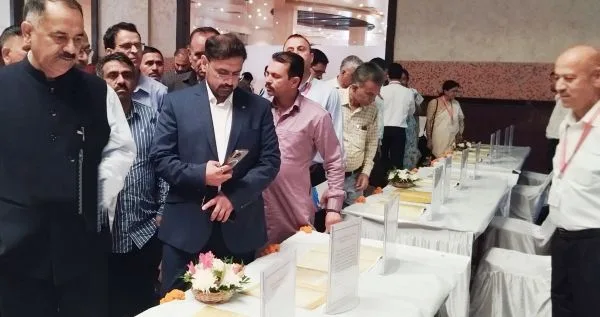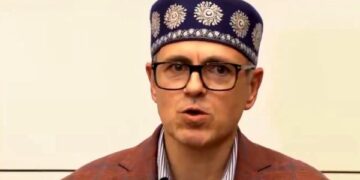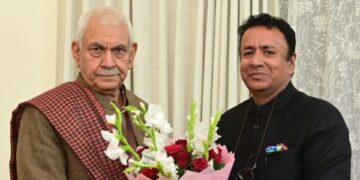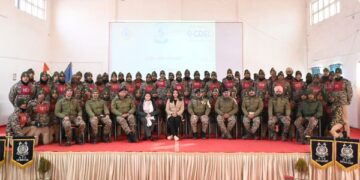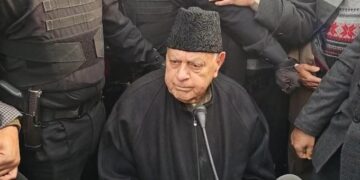Jammu: Minister for Food, Civil Supplies & Consumer Affairs (FCS&CA), Science, Technology and Transport Departments, Satish Sharma, today called for 100 percent digitization of Archives records in Jammu and Kashmir.
The Minister was speaking as the chief guest at the inaugural session of the two-day 49th meeting of the National Committee of Archives, which commenced today at the Convention Centre, Jammu.
Speaking at the occasion, the Minister appreciated the remarkable progress being made in the areas of digital preservation of all Archives and cultural heritage in Jammu and Kashmir. He said that the ongoing efforts to digitize archival records at both Srinagar and Jammu repository are a great milestone and a significant step towards safeguarding J&K’s invaluable history.
“These initiatives not only preserve our cultural identity but also make historical data accessible to students, researchers and institutions across the country and beyond,” maintained the Minister.
He said that the successful hosting of photographic and art exhibitions in New Delhi and the upcoming events in Jammu and Srinagar, are reflective of our growing emphasis on modernizing cultural capacity and embracing innovative preservation techniques. These platforms not only celebrate our heritage but also foster educational awareness and cultural pride among citizens, he added.
He called for 100 percent digitization of all the records and stressed on completion of pending digitization work in the shortest span of time period.
He emphasized upon all the departments and stakeholders for their collaborative spirit and commitment towards this digitalization project. “The Government of Jammu and Kashmir fully supports these efforts, which align with our broader vision of inclusive growth, heritage preservation and digital transformation,” he said.
The Minister, who also inaugurated an archival exhibition showcasing rare records and documents, stressed the need for support in archival management.
The 49th Meeting of the National Committee of Archivists witnessed participation from representatives of around 20 States and Union Territories.
The event started with the lighting of lamp ceremony followed by an online inaugural speech by Minister for Culture of India, Gajendra Singh Shekhawat. He encouraged the J&K Government for its endeavours towards preservation of it rich history and heritage.
Arun Singhal, Director General, National Archives of India; Brij Mohan Sharma, IFS, Principal Secretary to Government, Culture Department; Kuldeep Krishan Sidha, Director Archives, Archaeology and Museums, J&K and Raju Singh, I/c Deputy Director Archives, New Delhi were also present on the occasion.
The meeting is being jointly organised by National Archives of India and Directorate of Archives, Archaeology & Museums, J&K.
Arun Singhal, Director General, National Archives of India (NAI), was the guest of honour.
The session witnessed the release of several initiatives aimed at enhancing public access to archival resources. These included the launch of NAI publications meant for the common masses, unveiling of Abhilekh Patal Version 3 and introducing Abhishree, an AI-based search tool designed to refine user accessibility.
In his address, Arun Singhal emphasized the critical role of archives in preserving the historical and cultural fabric of the nation.
The second half of the day witnessed the Business Session which commenced with a detailed presentation of Abhilekh Patal V3, focused on enhancing user experience through an improved interface and accessibility. The newly introduced AI tool Abhishree was highlighted as a game-changing addition, designed to simplify and personalize archival research.
The meeting proceeded with discussions on a ten-point agenda. These included a review of the action taken report on digitization, infrastructure concerns such as the condition of buildings and the need for round-the-clock temperature and humidity control and crucial conservation efforts like anti-termite treatments and compactor installations.
An insightful presentation was delivered by Kalpana Shukla, Consultant, on the checklist for visual inspection of records at field offices. This was followed by a presentation by the West Bengal State Archives, detailing the challenges they encountered in the preparation of documentary films.

